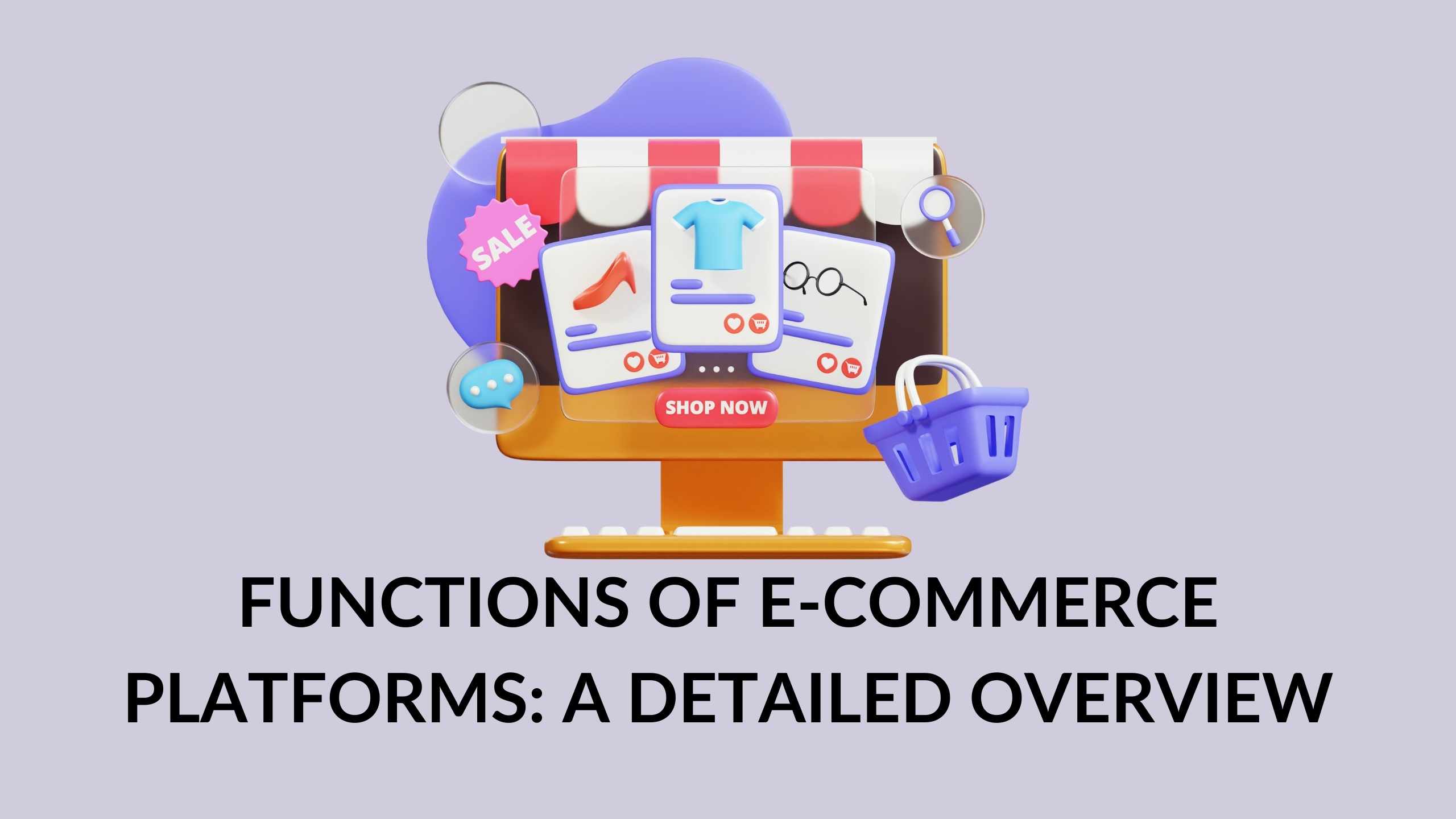Functions of E-commerce Platforms: A Detailed Overview


Functions of E-commerce Platforms: A Detailed Overview
E-commerce platforms are the technological backbone of online businesses, offering a multitude of functions that streamline operations and enhance the overall shopping experience. This article provides a detailed overview of the functions of e-commerce platforms, exploring the key features that make them essential for businesses in the digital age. Additionally, we’ll highlight relevant Software as a Service (SaaS) products, showcasing the diverse functionalities within the e-commerce subscription stack.
Understanding the Functions of E-commerce Platforms
What are the Functions of an E-commerce Platform?
E-commerce platforms serve as comprehensive solutions, encompassing a range of functions that contribute to the success of online businesses. Let’s delve into the key functions that define the role of e-commerce platforms:
Key Functions of E-commerce Platforms
1. Product Catalog Management
E-commerce platforms enable businesses to efficiently manage and showcase their product catalogs. From adding new products to updating existing listings, this function ensures a seamless display of offerings.
2. Secure Online Transactions
Facilitating secure online transactions is a fundamental function of e-commerce platforms. These systems integrate payment gateways and implement security measures to protect customer information during the purchase process.
3. Order Processing and Management
Efficient order processing and management streamline the post-purchase workflow. E-commerce platforms automate order confirmation, tracking, and inventory management, reducing manual intervention and the risk of errors.
4. Customer Relationship Management (CRM)
E-commerce platforms incorporate CRM functionalities to manage customer interactions and enhance relationships. From personalized marketing communications to order history tracking, CRM features contribute to a better understanding of customer preferences.
5. Integrated Analytics and Reporting
Comprehensive analytics and reporting tools are integral to e-commerce platforms. Businesses leverage these functions to gain insights into customer behavior, monitor sales performance, and make data-driven decisions.
Exploring Relevant E-commerce SaaS Products
To provide practical insights into the functions of e-commerce platforms, let’s explore some relevant SaaS products in the market:
Conclusion
In conclusion, the functions of e-commerce platforms are pivotal in driving the success of online businesses. From managing product catalogs and facilitating secure transactions to efficient order processing, CRM, and analytics, these platforms offer a holistic solution for businesses operating in the digital realm.
Exploring products like Shopify, Magento, WooCommerce, BigCommerce, and Square Online provides valuable insights into the diverse functionalities and capabilities of e-commerce platforms.








